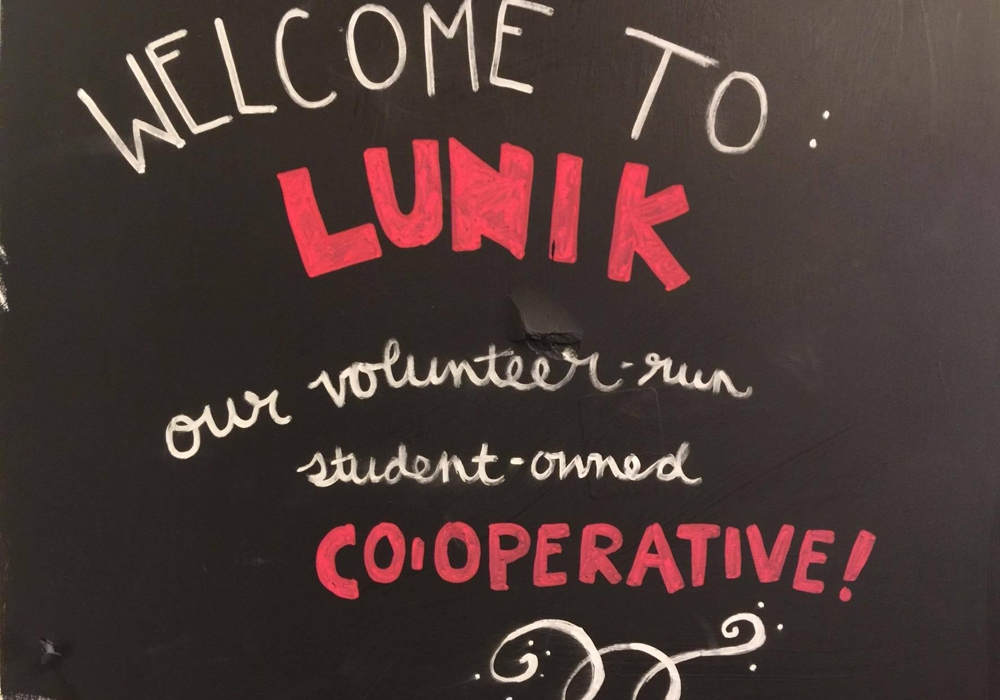Kanchi Uttamchandani, Staff Writer
Featured image courtesy of Vishwaveda Joshi
Food insecurity and a general lack of sustainable food options seems to be defining the York food scene.
In an attempt to address this, the Glendon campus is housing a student-run cooperative called Lunik, which strives to increase food options for the Glendon College community by providing environmentally, socially, and economically sustainable alternatives.
The idea of Lunik first came about in 2008 by a group of students who wanted to create an alternative student space with sustainable practices and affordable prices.
Glendon administration agreed to grant a levy of $0.90 per credit to help realize this dream. Thus, the Lunik Co-operative Café was born.
“Today we are a hugely popular and successful student-run café with fancy teas, ethical coffee, and all sorts of delicious vegan and vegetarian snacks, all available by donation,” says Lunik.
“More than its role as a café, the Lunik Co-op has established itself as an important meeting ground for students to study, discuss, and create. Lunik is a levied organization, which means that each student pays into the space with their tuition, and therefore every student is an owner of the cooperative.”
Meanwhile at Keele, a business incubator called the Green Campus Cooperative is trying to bring a food cooperative business model among many of its other fair trade and sustainable initiatives to the York campus.
Darryl Reed, business and society professor and project director, says there is a long tradition of student cooperatives in Canada, particularly in Quebec.
The green campus co-op initiative allows not only students, but also other stakeholders such as faculty and staff, to be members.
“The reason being that while students have lots of energy and ideas, they have little experience with running businesses,” says Reed.
“Student leadership is transient. On the other hand, faculty have skills and historic memory of institutions. So, it is important to consider them as stakeholders as well.”
The aim is to offer experiential learning opportunities to students so that they can get a hands-on business experience through co-ops designed to be participatory and democratic, he adds.
Reed highlights how it is possible for sustainable businesses to be commercially viable as well, unlike Lunik, which is based on student subsidies, implying that it cannot function as a business per se.
”We are working with the faculty association to re-open the graduate pub in the Ross building that was shut down four years back and transform it into a sustainable bistro for students. In terms of menu, we want to start off with a base vegan menu, which is sustainable at the planetary level.”
Reed admits it is not always cheap to offer sustainable products, so a possible solution to combat high costs is through collaboration with other organizations in order to create a sustainable and affordable supply chain.
“We got a grant from the university on the basis of which the green campus co-op was set up. We were going to finance the re-opening of the cafe, in part through student levies, but mainly through community bonds, which the university was concerned about as they thought it was a liability.”
“We had to meet with different offices to explain community bonds because of which things got delayed for six months. We were told that commercial businesses can do their own renovations, so we developed our business plan on that basis by coordinating with the workers co-op at Guelph.”
Co-ops continue to struggle to find their place at York.
Tweet us, @excaliburYU


